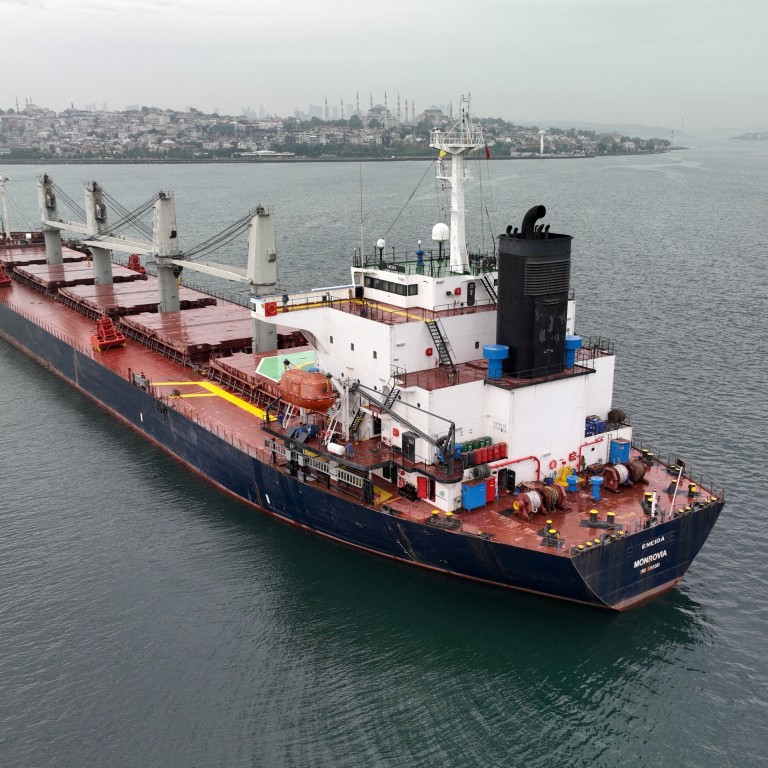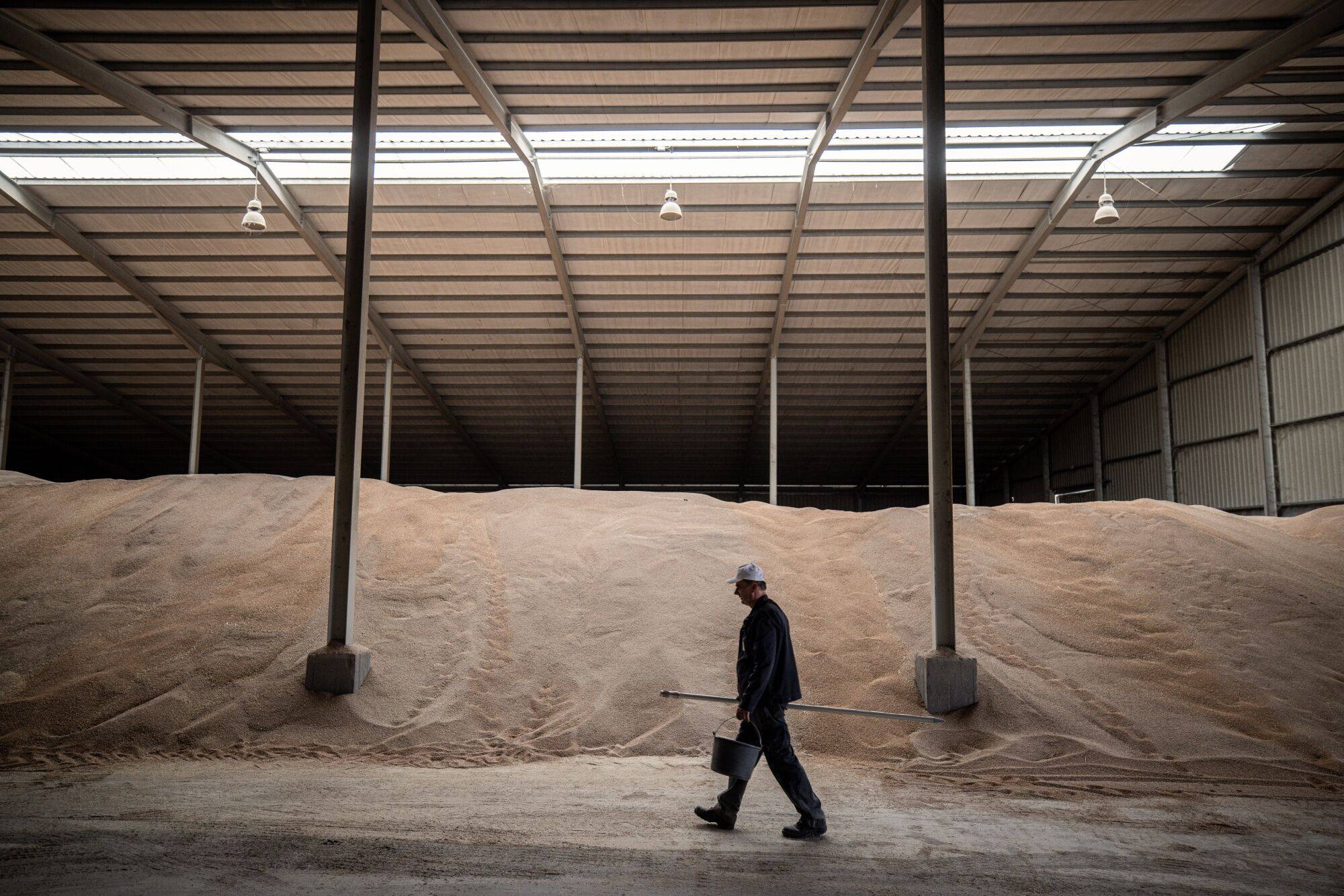
Ukraine war: Russia agrees to extend deal that allows grain through Black Sea
- Russia had set a Thursday deadline for its concerns to be ironed out or had threatened to bow out
- The UN and Turkey brokered the Black Sea deal for an initial 120 days last year to help tackle a global food crisis that was aggravated by Moscow’s invasion of Ukraine
Russia confirmed reports on Wednesday that the Black Sea grain deal to allow Ukraine to export its grain safely across the Black Sea had been extended for two months, one day before Russia could have quit the pact over obstacles to its grain and fertiliser exports.
The flow of ships through the corridor had been grinding to a halt during the last few days with the deal apparently set to expire on Thursday.
Earlier on Wednesday, the last remaining ship registered to travel through the corridor had left a Ukrainian port.
UN data showed that the DSM Capella had left the Ukrainian port of Chornomorsk carrying 30,000 tonnes of corn and was on its way to Turkey.

“The Black Sea grain corridor deal has been extended by two months with the efforts of Turkey,” Turkish President Recep Tayyip Erdogan said on Wednesday during a televised speech, also thanking the Russian and Ukrainian leaders and UN Secretary General Antonio Guterres for their help.
Russian Foreign Ministry spokeswoman Maria Zakharova said the deal had been extended to help countries in need, but added that Russia’s overall assessment of the situation regarding the deal “has not changed”
Kyiv thanked the United Nations and Turkey for their role in brokering the deal.
“The Black Sea Grain Initiative has been unblocked, [and] continues to be valid” until July 18, Ukraine’s Infrastructure Minister Oleksandr Kubrakov said on Twitter, adding Kyiv was “grateful to our partners” for their efforts in “strengthening food security”.
The UN and Turkey brokered the Black Sea deal for an initial 120 days in July last year to help tackle a global food crisis that has been aggravated by Moscow’s invasion of Ukraine, one of the world’s leading grain exporters.
Can Ukraine knock out Russian superweapon with Patriots?
Moscow agreed to extend the Black Sea pact for a further 120 days in November, but then in March it agreed to a 60 day extension – until May 18 – unless a list of demands regarding its own agricultural exports was met.
While Russian exports of food and fertiliser are not subject to Western sanctions imposed following the February 2022 invasion of Ukraine, Moscow says restrictions on payments, logistics and insurance have amounted to a barrier to shipments.
The United States has rejected Russia’s complaints. US Ambassador to the UN Linda Thomas-Greenfield said last week: “It is exporting grain and fertiliser at the same levels, if not higher, than before the full scale invasion.”
Officials from Russia, Ukraine, Turkey and the UN make up a Joint Coordination Centre (JCC) in Istanbul, which implements the Black Sea export deal. They authorise and inspect ships. No new vessels have been authorised by the JCC since May 4.
Authorised ships are inspected by JCC officials near Turkey before travelling to a Ukrainian Black Sea port via a maritime humanitarian corridor to collect their cargo and return to Turkish waters for a final inspection.
Some 30.3 million tonnes of grain and foodstuffs has been exported from Ukraine under the Black Sea deal, including 625,000 tonnes in World Food Programme vessels for aid operations in Afghanistan, Ethiopia, Kenya, Somalia, and Yemen.
Additional reporting by Associated Press, Agence France-Presse

